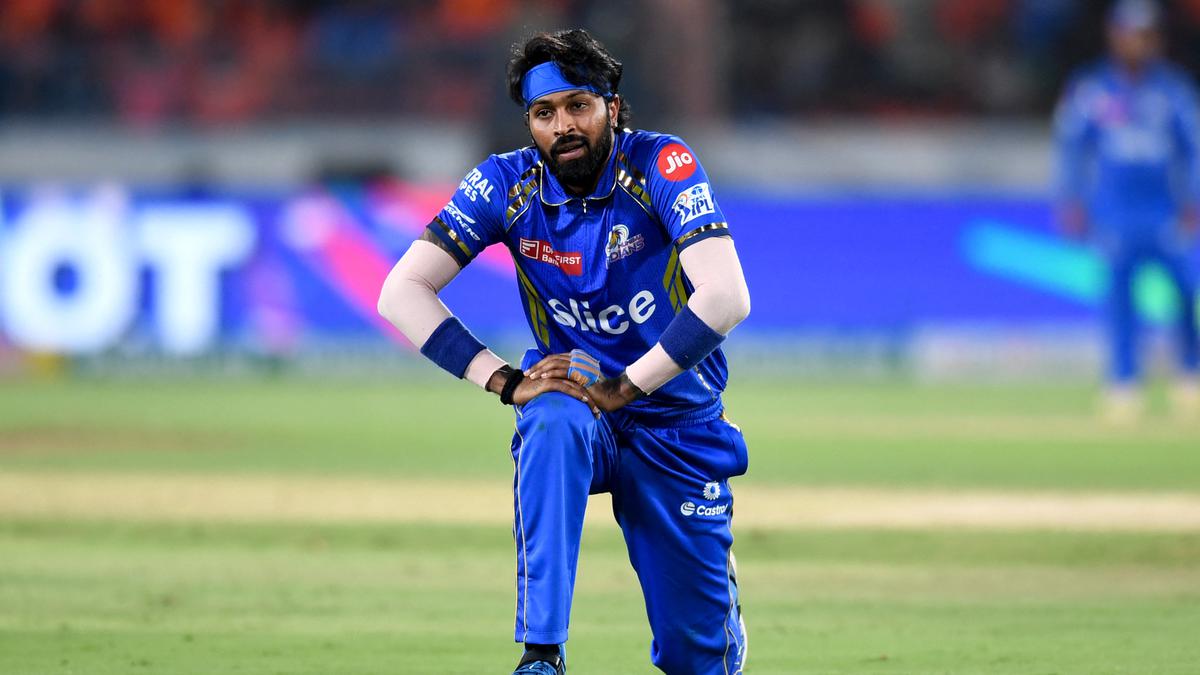
The dichotomy of fandom in the IPL era: understanding the Hardik Pandya situation Premium
The Hindu
The importance of fans in sports, the impact of their presence, and the challenges faced by players without their support.
Sport without fans is like watching a tap-dancing session in a heavily carpeted hall without any background score and that too in a soundproofed room. The acoustic joy goes missing, and the same applies when fans don’t turn up while venues lapse into melancholic whispers.
Be it the ancient Roman Colosseum where mobs made raucous noise while watching blood sport, or the more sanitised venues of the modern globe in which athletes compete hard for titles, it is the avid follower who adds value. The decibel levels rise, expectation quadruples, tongue-in-cheek placards are held and even marriage proposals are aired towards superstar players.
Can you imagine Wimbledon without the head twitches of those sitting in the stands? As heads turn left and right following the ball, it adds another layer of visual symmetry. The collective memories of watching sport add a warm glow of nostalgia and the resultant applause enhances a sportsperson’s desire to excel. Actor and politician Kamal Haasan often says that he is a limelight moth; it is a truism that applies to practitioners of sport too as they love the attention.
Complexities often sneak into this symbiotic world of the achiever and the devotee. Fandom gets intertwined with nationalism at a larger plane and individual or club loyalty at the hyper-local zone. It all remains smooth as long as the team or player you root for does well, but once form deserts them and triumphs turn coy, the loyalists’ collective self-esteem gets shredded and that breeds toxicity.
Hardik Pandya is learning this the hard way ever since he winged his way back to the Mumbai Indians dugout after a stint as the Gujarat Titans skipper in the Indian Premier League (IPL). Reportedly his demand for being appointed captain of the Mumbai franchise and the haphazard manner in which incumbent Rohit Sharma was nudged out did not sit well with Mumbaikars.
Hitman Rohit is an icon not just in the highrises and slums of Mumbai, but across India and the cricketing world. Plus he was seen as the quintessential city-dweller with his Mumbaiya slang. He was the insider within the humid sea-lapped metropolis or ‘Maximum City’ as writer Suketu Mehta rightly called it. Hardik was noted as the outsider walking straight in and clamouring for attention.
It was like those lateral entries seen in the corporate world where the new-hire strides in with a fancy designation and a hefty pay-cheque. Resentment is bound to occur. Right from the moment the latest IPL commenced on March 22, Hardik has got the rough end of the stick, be it at Ahmedabad, his former home ground, or in Mumbai, his current base. The former treated him as a deserter and the latter drew in the curtains and sulked.













